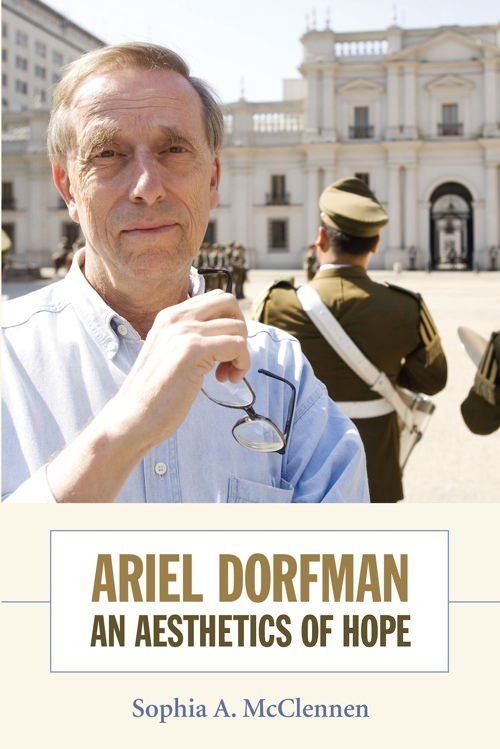
Ariel Dorfman: An Aesthetics of Hope is a critical introduction to the life and work of the internationally renowned writer, activist, and intellectual Ariel Dorfman. It is the first book about the author in English and the first in any language to address the full range of his writing to date. Consistently challenging assumptions and refusing preconceived categories, Dorfman has published in every major literary genre (novel, short story, poetry, drama); adopted literary forms including the picaresque, epic, noir, and theater of the absurd; and produced a vast amount of cultural criticism. His works are read as part of the Latin American literary canon, as examples of human rights literature, as meditations on exile and displacement, and within the tradition of bilingual, cross-cultural, and ethnic writing. Yet, as Sophia A. McClennen shows, when Dorfman’s extensive writings are considered as an integrated whole, a cohesive aesthetic emerges, an “aesthetics of hope” that foregrounds the arts as vital to our understanding of the world and our struggles to change it.
To illuminate Dorfman’s thematic concerns, McClennen chronicles the writer’s life, including his experiences working with Salvador Allende and his exile from Chile during the dictatorship of Augusto Pinochet, and she provides a careful account of his literary and cultural influences. Tracing his literary career chronologically, McClennen interprets Dorfman’s less-known texts alongside his most well-known works, which include How to Read Donald Duck, the pioneering critique of Western ideology and media culture co-authored with Armand Mattelart, and the award-winning play Death and the Maiden. In addition, McClennen provides two valuable appendices: a chronology documenting important dates and events in Dorfman’s life, and a full bibliography of his work in English and in Spanish.
‘“Ariel Dorfman: An Aesthetics of Hope is a complete life-and-works study of Dorfman, one of the premier Latin American writers. Surprisingly, it is the first full-length English-language study of the author. I learned a great deal from this rich and compassionate text. Sophia A. McClennen approaches Dorfman with measured affection and a sharp critical eye. She has written a model study: the biographical information provides context for the creative work, and her analysis of the creative work avoids excessive plot summary, while still giving the reader unfamiliar with a given text enough information to understand the argument.”’— Debra A. Castillo, author of Redreaming America: Toward a Bilingual American Culture
‘“Sophia A. McClennen is a writer of extraordinary gifts and one of our most promising intellectuals. In Ariel Dorfman: An Aesthetics of Hope, she not only gives human form to a poetics and politics of hope, but also offers us a brilliant and compelling narrative of Ariel Dorfman’s work and life, revealing the courage and costs involved in taking risks, embracing civic courage, addressing the suffering of others, and living in a world in which democracy must never be taken for granted. Beautifully written and brilliantly argued, this is a book for everyone who believes that hope is the poetry of politics.”’— Henry A. Giroux, author of Hearts of Darkness: Torturing Children in the War on Terror
“Controversial, relentless, provocative, and astoundingly creative, Dorfman has been the most single-minded culture critic of the latter part of the 20th century. McClennen’s critique is, in turn, an exemplary analysis of Dorfman’s remarkable practice of thinking through crisis. An invaluable addition to the literature on literary and cultural studies. Essential.”— K. M. Sibbald, Choice
“[A] welcome overview of Ariel Dorfman’s huge corpus of literary, journalistic, cinematographic, and critical work. … McClennen’s book … makes the reader aware of the monumental and diversely composed project that is Dorfman’s corpus.”— Robert F. Barsky, Modern Drama
“[T]his remarkable study makes a valuable contribution for those interested in Dorfman’s life and works and for anyone considering the difficult questions of how literature can effectively engage with the world in which we live, of what role more experimental art can play in the age of mass media, and of how language can engage with trauma and memory.”— Victoria Garrett, Hispania